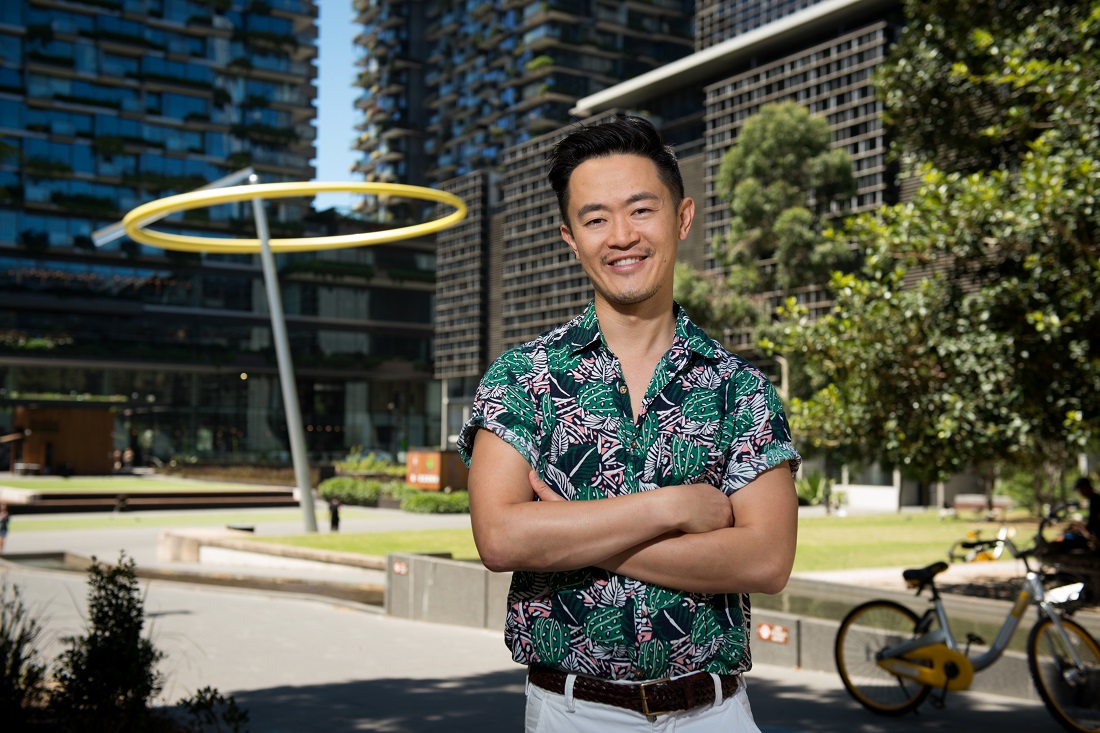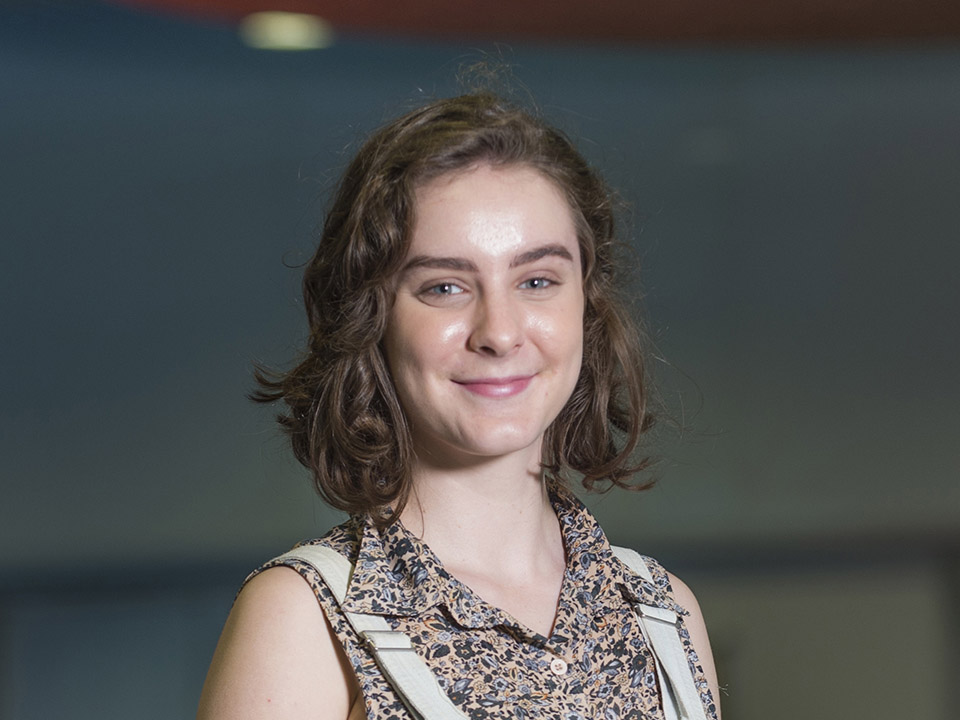Real writing skills
'The training and assessment was hands-on, practical and industry-focused. It gave me so many foundational skills I needed to later write my memoir The Family Law, and then create and co-write the TV adaption for SBS.'
Real writing skills
'The training and assessment was hands-on, practical and industry-focused. It gave me so many foundational skills I needed to later write my memoir The Family Law, and then create and co-write the TV adaption for SBS.'


Highlights
- Work creatively on writing novels, poetry, short stories, creative non-fiction, memoir, and genre fiction. You'll work towards a year-long major piece of creative writing in a form and genre of your choice.
- Learn about central ideas from literary theory and ways to think and write critically about texts.
- Learn from highly experienced and published authors, scholars, and experts in creative writing.
- Gain a strong foundation in contemporary law knowledge, understanding and experience.
- Benefit from meaningful connections with high profile industry employers and classes with leading and internationally renowned law experts.
- Develop specialised creative skills while meeting the academic requirements for admission to legal practice in Australia.
- Complete 2 degrees in 5.5 years full-time.
Highlights
- Work creatively on writing novels, poetry, short stories, creative non-fiction, memoir, and genre fiction. You'll work towards a year-long major piece of creative writing in a form and genre of your choice.
- Learn about central ideas from literary theory and ways to think and write critically about texts.
- Learn from highly experienced and published authors, scholars, and experts in creative writing.
- Gain a strong foundation in contemporary law knowledge, understanding and experience.
- Benefit from meaningful connections with high profile industry employers and classes with leading and internationally renowned law experts.
- Develop specialised creative skills while meeting the academic requirements for admission to legal practice in Australia.
- Complete 2 degrees in 5.5 years full-time.
Why choose this course?
This double degree prepares you to work as a professional creative writer, as a barrister or solicitor in private practice, or to practise with large companies, in government agencies, or as a policy adviser. Through the combination of creative writing with law, you will enhance your employability in your chosen field, whether in the legal fraternity or as a creative practitioner. You can advise on the legalities in the publishing or creative writing industries, or in relation to copyright or intellectual property law, or work as an editor of legal-related publications or in a position specialising in law in the publishing industry.
Immerse yourself in the creative writing major with up to 16 discipline units and gain in-depth knowledge in your specialisation. Your law degree component comprises nineteen core units and eight law elective units, which can include a third study area as a minor or electives from across QUT.
We offer the largest and most comprehensive undergraduate writing course in South-East Queensland with the broadest range of units on offer. We take a transdisciplinary approach from the outset, encouraging you as a specialist creative writer to work in teams with others who have different creative skill sets. You will graduate with advanced writing and communication competence—a rare skill keenly sought by employers.
You will be taught by highly experienced and published authors, scholars, and experts in creative writing.
Visits from other writers, editors and publishers will further help you gain a unique perspective on writing as a vocation and as a critical and creative practice. Writers, editors and publishers regularly provide guest lectures for the benefit of students, and you’ll have access to the industry and national writing communities.
Explore this course
Both creative writing and law require high-calibre, sophisticated communication. This double degree will strongly develop your writing skills which can be applied through your law studies and in future careers.
Areas of study include all the major areas of law and creative writing. In the creative writing component of the course, you will work intensively on your writing in a number of forms including novels, short stories, creative non-fiction, memoir, genre writing, and poetry. You will develop comprehensive editing skills as well as self-editing skills. You will learn about and engage with local writing contexts, as well as enter contemporary debates around ideas that illuminate and challenge what people write and how they write it. You will learn to think and write critically about texts. You will learn how to engage readers through emotional story telling. You will progress towards a major piece of creative writing in a form and genre of your choice at the end of your degree.
In the law component, there is a practical focus which, when combined with creative writing study, will equip you for a broad range of careers, including legal practice.
Careers and outcomes
Your law degree will provide additional career opportunities, and legal skills you can apply in your creative industries career. Alternatively your writing skills will complement your legal studies, should you choose to pursue a career as a lawyer. Your degrees in law and creative writing will prove invaluable in legal careers within publishing, intellectual property or policy development, or in writing careers focusing on legal issues such as crime writing, or case reporting.
Graduates can work as writers and editors in legal, community and freelance capacities.
Professional recognition
The Bachelor of Laws (Honours) is accredited by the Legal Practitioners' Admissions Board (LPAB). To become a solicitor or barrister, you will need to complete practical legal training (PLT) and pass the Bar Exams. QUT offers PLT through our Graduate Diploma in Legal Practice.
Possible careers
- Academic
- Art writer
- Barrister
- Copywriter
- Creative writer
- Crown law officer
- Government officer
- In-house lawyer
- Information officer
- Intellectual property lawyer
- Lawyer
- Organisational communication specialist
- Policy analyst
In order to complete this course, you must complete a total of 528 credit points comprising 192 credit points from the Bachelor of Fine Arts and 336 credit points from the Bachelor of Laws (Honours). You will study fine arts and law units in your first your years and for the remainder of this course you will concentrate on law studies.
Fine Arts Component:
You will complete two common units (24 credit points) and a Fine Arts major (168 credit points) from one of the following disciplines (Creative Writing; Film, Screen and New Media).
Law Component:
To meet the requirements of the Bachelor of Laws (Honours) component of the double degree, you must complete a total of 336 credit points comprising 240 credit points of core units, 24 credit points of law electives, 48 credit points of general electives and 24 credit points of advanced law electives. General electives may be selected as a 48 credit point Law, Technology and Innovation Minor or other uni wide minor; or as four standalone electives selected from the law electives list or university-wide electives list.
Successful completion of a minor will be recognised on the Academic Record and the Australian Education Graduation Statement.
Law Honours Grading
Honours grading is based on a whole of course GPA.
In order to complete this course, you must complete a total of 528 credit points comprising 192 credit points from the Bachelor of Fine Arts and 336 credit points from the Bachelor of Laws (Honours). You will study fine arts and law units in your first your years and for the remainder of this course you will concentrate on law studies.
Fine Arts Component:
You will complete two common units (24 credit points) and a Fine Arts major (168 credit points) from one of the following disciplines (Creative Writing; Film, Screen and New Media).
Law Component:
To meet the requirements of the Bachelor of Laws (Honours) component of the double degree, you must complete a total of 336 credit points comprising 240 credit points of core units, 24 credit points of law electives, 48 credit points of general electives and 24 credit points of advanced law electives. General electives may be selected as a 48 credit point Law, Technology and Innovation Minor or other uni wide minor; or as four standalone electives selected from the law electives list or university-wide electives list.
Successful completion of a minor will be recognised on the Academic Record and the Australian Education Graduation Statement.
Law Honours Grading
Honours grading is based on a whole of course GPA.
- ATAR/selection rank threshold
- 84.00
These thresholds are the lowest adjusted scores to which QUT made an offer in Semester 1, 2024.
Don't have a ATAR/selection rank?
- Course code
- ID45
- QTAC code
- 409472
- CRICOS code
- 083024E
-
- Gardens Point
- Kelvin Grove
-
- Gardens Point
- Kelvin Grove
- 5.5 years full-time
- 5.5 years full-time
- February and July
- February and July
Assumed knowledge
Before you start this course, we assume you have sound knowledge of the subject/s listed below. If you don't have the subject knowledge, you can still apply for the course but we strongly encourage you to undertake bridging studies to gain the knowledge:
- English, or Literature, or English and Literature Extension, or English as an Additional Language (Units 3 & 4, C)
Offer guarantee
If you achieve an ATAR or selection rank of 87.00 or higher (including any adjustments) and satisfy all other admission requirements, you are guaranteed an offer for this course.
Advanced standing
If you have prior studies or work experience, you may be eligible for advanced standing (credit). You can apply for advanced standing once you've been accepted to QUT. If you're in your first semester of study, you must apply for advanced standing within 10 days of receiving your offer.
Deferment
You can defer your offer and postpone the start of your course for one year.
More about deferring your offer
Adjustments to your ATAR/selection rank
Any adjustments you receive to your ATAR or selection rank will be applied to this course.
Find out if you’re eligible for an adjustment to your ATAR or selection rank
Offers we made to school leavers in Semester 1, 2023
The figures listed in the tables below reflect the offers that were made to recent ATAR students. The entry thresholds box at the top of this page shows the lowest adjusted ATAR/selection rank required to receive an offer for all applicants for the most recent January QTAC offer round.
| Excluding adjustments | Including adjustments | |
|---|---|---|
| Highest ATAR/selection rank to receive an offer |
Selection rank
97.75
|
Selection rank
99.95
|
| Median ATAR/selection rank to receive an offer |
Selection rank
92.22
|
Selection rank
93.68
|
| Lowest ATAR/selection rank to receive an offer |
Selection rank
84.00
|
Selection rank
87.00
|
You can find out more about your fellow students’ backgrounds with this course’s student profile.
Other admission options
If you are of Aboriginal or Torres Strait Islander descent, you may be eligible for admission through our Centralised Assessment Selection Process (CASP).
Select the country where you completed your studies to see a guide to the grades you need to apply for this course.
If your country or qualification is not listed, you can still apply for this course and we will assess your eligibility.
I completed secondary school in Australia
- ATAR/selection rank
- 84.00
Offer guarantee
If you completed secondary school in Australia and achieve an ATAR/selection rank of 87.00 or higher (including any adjustments) and satisfy all other admission requirements, you are guaranteed an offer for this course.
Minimum English language requirements
Select the country where you completed your studies to see a guide on meeting QUT’s English language requirements.
Your scores and prior qualifications in English-speaking countries are considered. Approved English-speaking countries are Australia, Canada, England, Ireland, New Zealand, Scotland, United States of America and Wales.
If your country or qualification is not listed, you can still apply for this course and we will assess your eligibility.
We accept English language proficiency scores from the following tests. Tests must be taken no more than 2 years prior to the QUT course commencement.
| English Test | Overall | Listening | Reading | Writing | Speaking |
|---|---|---|---|---|---|
| PTE Academic/PTE Academic Online | 58 | 50 | 50 | 50 | 50 |
|
Cambridge English Score
You must share your results with QUT through the Candidate Results Online website. |
176 | 169 | 169 | 169 | 169 |
| IELTS Academic / IELTS Online / IELTS One Skills Retake | 6.5 | 6 | 6 | 6 | 6 |
| TOEFL iBT / Home / Paper | 79 | 16 | 16 | 21 | 18 |
Don't have the English language score you need? We can help!
We offer English language programs to improve your English and help you gain entry to this course.
When you apply for this course, we will recommend which English course you should enrol in.
Your actual fees may vary depending on which units you choose. We review fees annually, and they may be subject to increases.
2025 fees
2025: CSP fees available from September
2025 fees
2025: Available from July
2024 fees
2024: CSP $15,400 per year full-time (96 credit points)
2024 fees
2024: $33,200 per year full-time (96 credit points)
Student services and amenities fees
You may need to pay student services and amenities (SA) fees as part of your course costs.
HECS-HELP: loans to help you pay for your course fees
You may not have to pay anything upfront if you're eligible for a HECS-HELP loan.
You can apply for scholarships to help you with study and living costs.
QUT Real World International Scholarship
A scholarship to cover tuition fees, with eligibility based on your prior academic achievements.
- Scholarship eligibility
- Academic performance
Keep up to date
QUT courses for you
Like to save your courses?
Please enter your first name and email so we can save your courses for you



